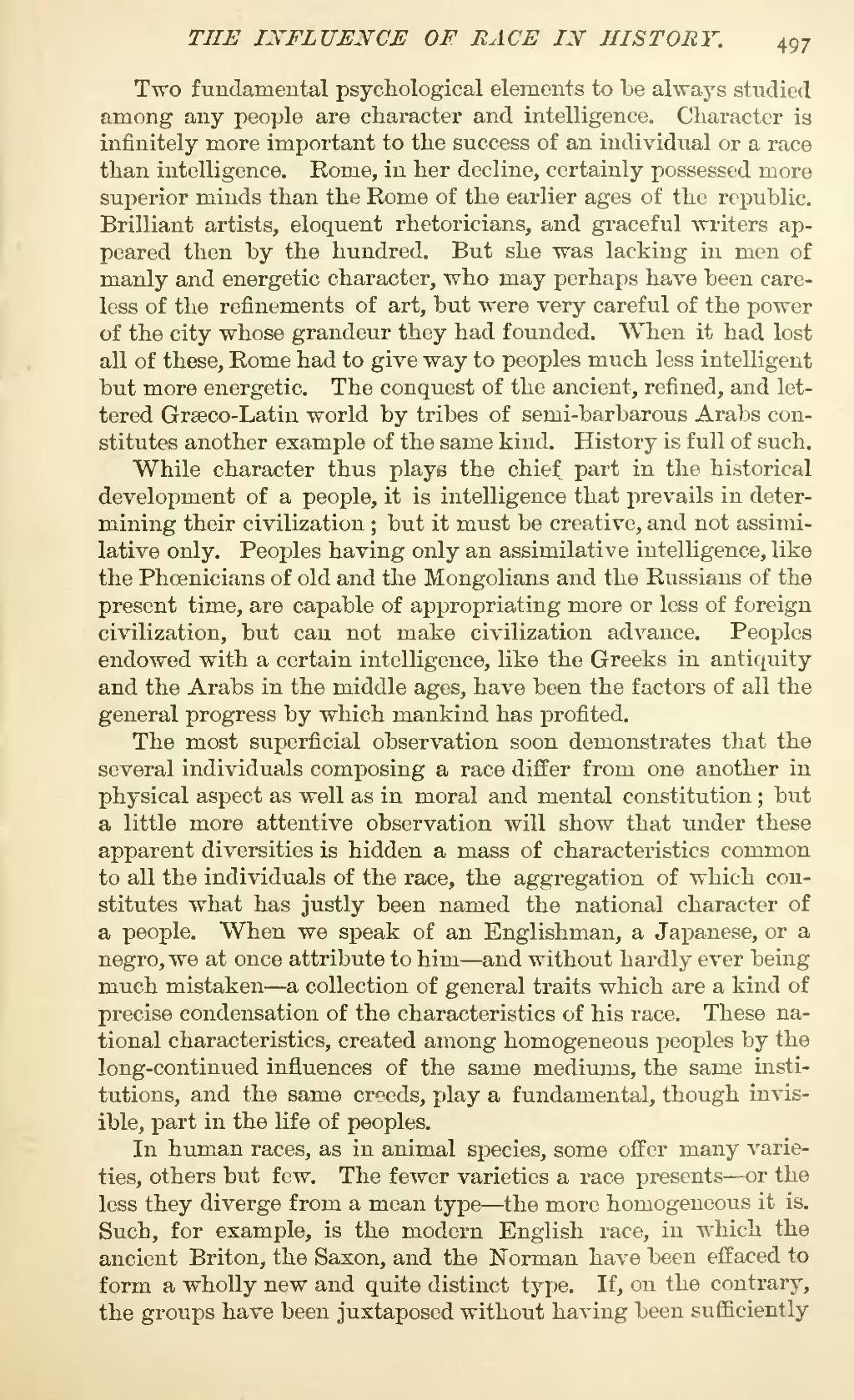Two fundamental psychological elements to be always studied among any people are character and intelligence. Character is infinitely more important to the success of an individual or a race than intelligence. Rome, in her decline, certainly possessed more superior minds than the Rome of the earlier ages of the republic. Brilliant artists, eloquent rhetoricians, and graceful writers appeared then by the hundred. But she was lacking in men of manly and energetic character, who may perhaps have been careless of the refinements of art, but were very careful of the power of the city whose grandeur they had founded. When it had lost all of these, Rome had to give way to peoples much less intelligent but more energetic. The conquest of the ancient, refined, and lettered Græco-Latin world by tribes of semi-barbarous Arabs constitutes another example of the same kind. History is full of such.
While character thus plays the chief part in the historical development of a people, it is intelligence that prevails in determining their civilization; but it must be creative, and not assimilative only. Peoples having only an assimilative intelligence, like the Phoenicians of old and the Mongolians and the Russians of the present time, are capable of appropriating more or less of foreign civilization, but can not make civilization advance. Peoples endowed with a certain intelligence, like the Greeks in antiquity and the Arabs in the middle ages, have been the factors of all the general progress by which mankind has profited.
The most superficial observation soon demonstrates that the several individuals composing a race differ from one another in physical aspect as well as in moral and mental constitution; but a little more attentive observation will show that under these apparent diversities is hidden a mass of characteristics common to all the individuals of the race, the aggregation of which constitutes what has justly been named the national character of a people. When we speak of an Englishman, a Japanese, or a negro, we at once attribute to him—and without hardly ever being much mistaken—a collection of general traits which are a kind of precise condensation of the characteristics of his race. These national characteristics, created among homogeneous peoples by the long-continued influences of the same mediums, the same institutions, and the same creeds, play a fundamental, though invisible, part in the life of peoples.
In human races, as in animal species, some offer many varieties, others but few. The fewer varieties a race presents—or the less they diverge from a mean type—the more homogeneous it is. Such, for example, is the modern English race, in which the ancient Briton, the Saxon, and the Norman have been effaced to form a wholly new and quite distinct type. If, on the contrary, the groups have been juxtaposed without having been sufficiently

